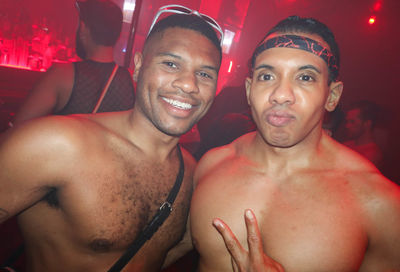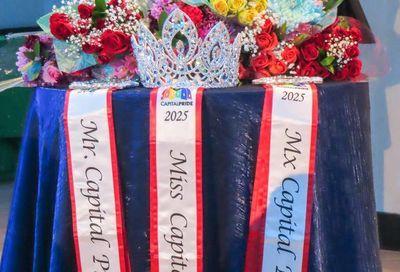How We Won
Bringing marriage equality to Washington has been years in the making
March 3 marked the start of same-sex couples being able to apply for marriage licenses in District of Columbia Superior Court.
The seeds of this victory trace back to 1975, when Cade Ware, Frank Kameny and Craig Howell of the Gay Activists Alliance (as it was then called) gave the first testimony before the D.C. Council in favor of same-sex marriage. In 1978 — responding to Anita Bryant’s successful anti-gay campaign in Dade County, Fla., the previous year — Jim Zais, Mayo Lee and Bill Boggan launched a successful effort to bar D.C. ballot measures in which people would vote on other people’s rights.
Our long journey to equality included everything from Human Rights Act protections to sodomy-law repeal. But it was not just policy victories that brought us here. Gay folk of all colors and backgrounds have deep roots in Washington. We have helped build and enrich our communities. Our opponents underestimated the strength of those roots, crying ”Let the people vote!” as if the people had not elected our overwhelmingly pro-gay legislature.
Among current activists, I must single out Bob Summersgill, our principal strategist, whose mastery of District law and the legislative process were invaluable. He devised the incremental approach that began with domestic partnerships and led to the moment last year when marriage was simply the next logical step rather than a giant leap.
As with any successful bill, there are legislators to thank. The top honors go to David Catania (I-At Large), author of the bill; Phil Mendelson (D-At Large), who steered it through committee; and D.C. Council Chairman Vincent Gray (D-At Large). Mayor Adrian Fenty (D), before signing the bill, invoked the moral example of his parents and spoke of a city that embraces all its people. Staffers are generally unsung, but they are essential. Here the stalwarts include Catania’s chief of staff, Ben Young; and Mendelson’s legislative counsel, Brian Moore. Moore made the committee report a work of art.
We did not just focus on passing the law; we laid the groundwork to sustain the victory. It was a multifaceted effort. DC Clergy United for Marriage Equality, co-chaired by Pastors Dennis Wiley, Christine Wiley and Rob Hardies, organized a broad spectrum of affirming clergy. D.C. Attorney General Peter Nickles strongly defended the bill against proposed ballot measures. Brian Flowers provided legal expertise as general counsel to the D.C. Council. Further legal chops were provided by Mark Levine, counsel for the Gertrude Stein Democratic Club, and by Nancy Polikoff, Michele Zavos and the National Center for Lesbian Rights. Michael Crawford of DC for Marriage led a grassroots organizing effort. Nick McCoy did extensive voter canvassing; he and Rev. Monique Ellison led outreach efforts at community meetings around the city. Sultan Shakir of the Human Rights Campaign assisted in organizing the Campaign for All D.C. Families. Republicans Patrick Mara and Bob Kabel lobbied Congress urging them not to interfere. I haven’t room to mention all who contributed.
The hundreds of witnesses at the legislative hearings last fall, representing the diversity of the city’s population, broke heavily in favor of the bill. We told about our lives and our families, while our opponents focused on dogma and fear-mongering.
Any student of the civil rights movement knows that the march to victory is interrupted by plenty of internal squabbling. In D.C. we were blessed by community leaders who were determined to keep our eyes on the prize. This was aided by the fact that our coalition was decades in the making.
Further battles lie ahead, and we are preparing for them. For now, it suffices to celebrate this landmark legislation toward which so many people worked. Those elsewhere who won the prize before us will perhaps forgive us if we try a new greeting for our city’s visitors: Welcome to the capital of marriage equality!
Richard J. Rosendall is a writer and activist. He can be reached at .
Support Metro Weekly’s Journalism
These are challenging times for news organizations. And yet it’s crucial we stay active and provide vital resources and information to both our local readers and the world. So won’t you please take a moment and consider supporting Metro Weekly with a membership? For as little as $5 a month, you can help ensure Metro Weekly magazine and MetroWeekly.com remain free, viable resources as we provide the best, most diverse, culturally-resonant LGBTQ coverage in both the D.C. region and around the world. Memberships come with exclusive perks and discounts, your own personal digital delivery of each week’s magazine (and an archive), access to our Member's Lounge when it launches this fall, and exclusive members-only items like Metro Weekly Membership Mugs and Tote Bags! Check out all our membership levels here and please join us today!



















